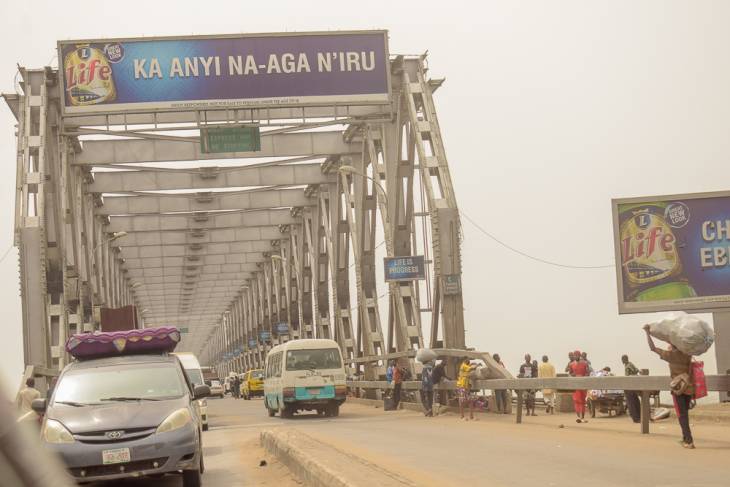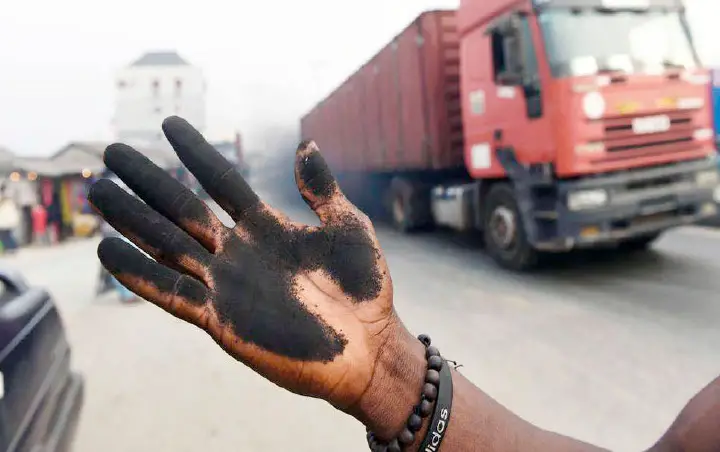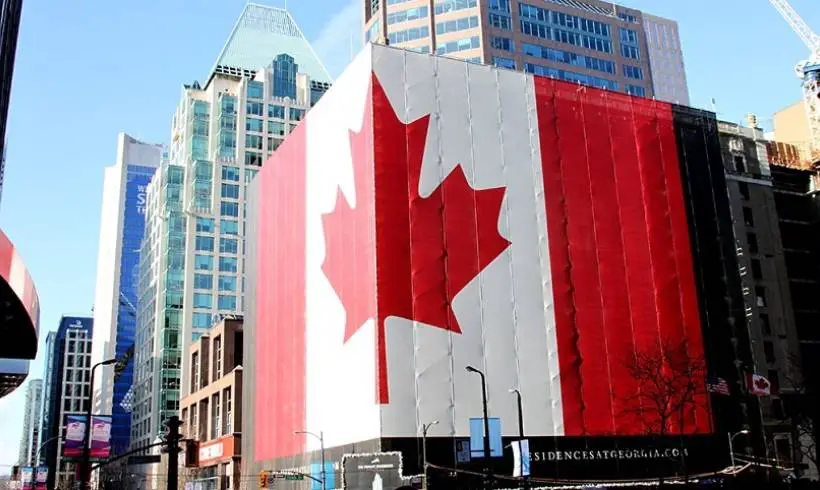Black Soot, Environmental Degradation, Unemployment: Is Oil Discovery in Niger Delta a Curse to Residents?

Niger Delta Bridge Backview, March 2021. Photo: Lightshot1/ Wikimedia.
With a capacity of 2.5 million barrels of oil production per day, Nigeria is Africa's largest producer of oil and the 13th largest oil-producing country on the globe. Oil account for about 65 percent of all government revenue.
Over its five decades of oil exploration, Nigeria has made tens of billions of dollars from crude oil sales. But despite the substantial revenue year in year out, the oil host communities in the country reek of poverty and many other humanitarian and economic issues, including frequent experiences of black soot, environmental degradation, high rate of unemployment/underemployment, oil spills, and gas flaring.
Most of these challenges are recurring problems they have suffered for years without a lasting solution. The health and economic ramifications of these plights have become a serious burden on residents in those communities, including the elderly and children.
Menace of Black Soot
Black soot, which is fast becoming a persistent issue in many Niger Delta areas, has been linked to the upsurge in life-threatening respiratory, skin, and reproductive health conditions. A 2019 report shows that black soot-related health conditions could be linked to about 25,000 deaths in the region.
In the past few months, the issue has escalated, and soot pictures obtained from those communities are devastatingly worrisome.

There has been rising concern in Bayelsa, one of the states in the Niger Delta region, over the noticeable soot across the skyline. According to a group, Niger Delta Vigilante (NDV), the development is linked mainly to the increase in ‘Kpo-fire,' an illegal but booming and popular oil bunkering activity in the area.
Kpo-fire is a local crude oil production process of heating crude oil in a fabricated oven to extract petroleum products. In the process, the residual from the crude is indiscriminately released into the environment, with no regard for its aftereffects on the ecosystem.
Some other factors believed to be responsible include the burning of seized stolen crude oil by security operatives and the burning of crude oil sites by some oil contractors in the industry as a way of cleaning up.
A few months ago, towards the twilight of the rainy season, residents in the state expressed concern over what was described as black rain anytime there was a downpour. But they did not take their observation seriously until the soot started showing in November and turned the cloud to a hazy grey.
Some residents of Port-Harcourt, Rivers, another Niger Delta state who spoke with Immigration Advice Service(IAS), lamented the health and environmental impacts they daily face as a result of the soot.
"The black soot has been a serious problem to the environment. In my home, we don't open our doors or windows because the place gets dirty almost immediately after we clean," Mildred Alerechi, a health style coach, complained. “My nails also get dirty for no reason; the black soot finds its way into my fingernails," he added.
There has been a wide complaint on the negligence by the government to the residents’ plight. Another resident who spoke with IAS said: “To the best of my knowledge, no concrete action has yet been taken; I’m sure they are aware of the underlying cause and can tackle the problem if they want to.”
Some days ago, the Rivers States government ordered the arrest and prosecution of artisanal refiners and any individual engaging in illegal bunkering in the state, noting that "the state is prepared to fight them more than ever before."
Environmental degradation
The debilitating effects of oil exploration on the ecosystem have been another concern Niger Delta people for decades.
According to a report on the Niger Delta ecosystem, the advent of oil activities in the communities has also negatively affected the region due to unprecedented oil spill, which has been occurring "for the past five decades, making the region one of the most polluted in the world."
The reckless corruption in the government-established authorities that ought to be responsible for the welfare of the region has further contributed to the unending ecocide.
An NNPC report back in 1983 showed that the slow poisoning of the waters and the destruction of agricultural land, vegetation, and good water source by oil spills usually happened during petroleum operations. But since the commencement of the oil industry in Nigeria, there has been no effective, lasting willpower by the government and oil operators to control the environmental impacts associated with the industry.
Even to date, oil firms still play the blame game on who should be held responsible for these environmental problems. A Dutch Appeal Court recently found the Shell Petroleum Development Company (SPDC) culpable for some farmland and fishpond pollutions in the area.
Despite the court order mandating SPDC to compensate the affected farmers, the oil company insisted that the damages were caused by sabotage and it should not be held responsible for the financial losses.
It took about a year before the company commenced a mediation process with the farmers to settle the case out of court. Until now, the case is still on, and it is left to be seen if both parties will reach a resolution anytime soon.
Unemployment and Other Economic Problems
Economically, most oil-producing communities are poverty-stricken and suffer a high unemployment rate. They also lack basic amenities such as good hospitals, stable electricity, potable water, motorable roads, and a conducive learning environment in their schools for their children.
As the communities experience all these, paradoxically, local and foreign oil companies and politicians reap handsomely from oil proceeds. Years of illegal bunkering, water degradation, air pollution, leaking pipelines, and other unwholesome activities have made many fishermen and farmers from the region jobless as their livelihood continues to be impacted by oil exploration.
“The crude by-products are usually released into the rivers and on farmlands. Take Ogoni as a case study, oil spills have stopped fishing activities in that area, and it is bad,” said Michael Ndukwu, a University of Port-Harcourt student.
While unemployment is a national issue in Nigeria, the challenge for Niger Delta people is peculiar due to certain apparent factors, which include environmental pollution resulting from oil exploration affecting farming, fishing, and other business activities in the region.
In a report that explored the underlying causes of unemployment and high poverty rate in the communities, Dr. E.D Simon, a researcher at the Cross River University of Technology (CRUTECH), Calabar, stated that the "Oil and mineral extraction in the [Niger Delta] region promoted the looting tendency by various government in Nigeria and have been linked with unusually high poverty rates, poor health care and high rate of mortality. This means that sustainable development can hardly be achieved under this unfavorable and in a secured environment."
The cost of living is also relatively high compared to most other locations in the country, which makes the incomes of most employed residents insufficient and automatically makes them underemployed.
While the huge cost of food importation and transportation usually increases feeding expenses among Nigerians, the challenge is more significant for Niger Delta residents. They could barely source any food items locally due to the damage on their farmlands and waters resulting from oil exploration. They, therefore, depend more on food items imported or transported from other parts of the country.
Gas flaring and Oil Spills
The consequences of gas flaring are also one of the enduring burdens long suffered in the region. According to International Photography Magazine, "Nigeria flares more natural gas associated with oil extraction than any other country. With an estimation of the 3.5 billion cubic feet (100,000,000 m³) of associated gas annually produced, 2.5 billion cubic feet (70,000,000 m³), or about 70%, is wasted by flaring.
The effects of this gas flaring not only impact the ecosystem, but also pose adverse health effects on residents in those communities. The poisonous chemicals and carcinogenic substances released into the environment affect the respiratory system. They are also known to be one of the major causes of cancer and leukemia in the world.
The regular Oil spill is another related experience usually faced by the host communities. A United Nations Development Program (UNDP) report revealed that 6,817 oil spills were recorded in the country between 1976 and 2001. 69 percent of these oil spills reportedly occurred offshore, a quarter was in swamps, and 6 percent on land.
Some researchers from the University of Lagos (UNILAG) found that certain factors are mainly responsible for the recurring oil spill in Nigeria: About 50 percent emanate from pipeline or truck accidents, 28 percent by sabotage, 21 percent happen during oil production operations, and 1 percent due to inadequate or nonfunctional production equipment.
The "sabotage" part is one of the factors that describe the situation in the Niger Delta. It is perpetrated by unemployed youths in the area who have embraced illegal oil bunkering as a source of livelihood. This worsens environmental pollution in the communities and reduces people’s life expectancy.
"The poverty rate in those places is high; hence the reason residents are involved in the illegal [oil bunkering] business. There are barely health facilities and educational facilities,” says Alerechi.
Outdated and faulty pumping equipment has been another factor responsible for oil spills. However, despite its associated disastrous impacts like the death of aqua life and the disappearance of mangrove forests, no serious efforts have been made to reconstruct those outdated production facilities.
While other oil-producing nations such as United Arab Emirates (UAE) and Saudi use their generated revenues to develop their countries and improve their citizens' living conditions, oil discovery and its related activities seem to curse the host communities in Niger Delta.
There is also great concern that if no urgent and concerted action is taken, oil exploration could cause an ecological disaster in the region, which could lead to a humanitarian catastrophe.





































